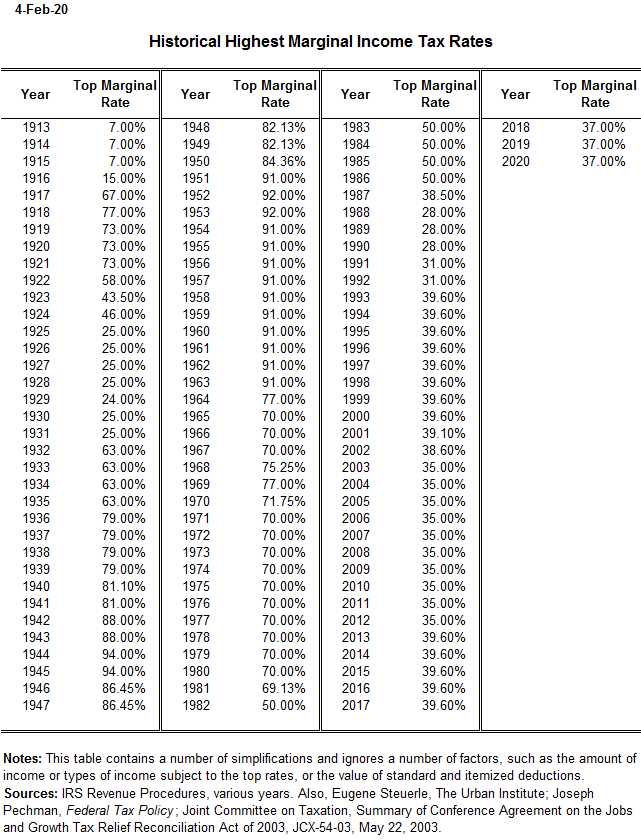Joe Manchin’s Weird Filibuster Defense
It doesn't work like the movies, Senator.

West Virginia’s senior Senator has taken to the op-ed pages of the Washington Post to declare, “I will not vote to eliminate or weaken the filibuster.” His reasoning is contradictory and ahistorical. His opening is innocuous enough:
When Americans vote to send their two senators to Washington, they trust that they will work to represent the interests of their state on equal footing with 98 other senators. I have always said, “If I can’t go home and explain it, I can’t vote for it.” And I respect that each of my colleagues has the same responsibility to their constituents.
Our institutions were built to require compromise and that requires, among other things, a belief that others are acting in good faith. Whether Senators “represent the interests of their state” or “their constituents” at this point, rather than the strategy of their political party, is certainly debatable.
It’s no accident that a state as small as West Virginia has the same number of senators as California or Texas. It goes to the heart of what representative government is all about. The Founding Fathers understood that the challenges facing a rural or small state would always be very different from a more populous state. Designating each state with the same number of senators — regardless of the population — ensured that rural and small states and the Americans who live in them would always have a seat at the table.
So, while that’s a lie that we tell ourselves, anyone who has taken even elementary school civics knows this isn’t true. Equal representation in the Senate was a result of the Great Compromise, a settlement of an acrimonious fight, not some grand philosophical design. And it had nothing at all to do with the interests of rural voters; the entire country was rural. Urban voters constituted some 5 percent of the population at the time. And, my goodness, having West Virginia’s 1.77 million people have equal representation with California’s 40 million is many things but it is the opposite of “representative government.”
The filibuster is a critical tool to protecting that input and our democratic form of government. That is why I have said it before and will say it again to remove any shred of doubt: There is no circumstance in which I will vote to eliminate or weaken the filibuster.
So, by sheer accident born of a compromise to solve the particular political squabbles of 13 sovereign equals trying to form a federation out of a confederation in the eighteenth century, rural states are vastly over-represented. That’s incredibly undemocratic. But that’s not enough protection! No, they need to be able to impose supermajority voting requirements on top of that!
The time has come to end these political games, and to usher a new era of bipartisanship where we find common ground on the major policy debates facing our nation.
This is at least adjacent to what is, in my view, the best argument for the filibuster: a country as diverse as ours shouldn’t enact major changes without broad consensus. If the filibuster worked like it does in the movies, where it forced good-faith compromise to get votes from the opposition, I would likely support it. Alas, for a variety of reasons (see Steven Taylor’s recent posts here and here) it has never really worked that way.
Think about the recent history. In 2013, Senate Majority Leader Harry M. Reid (D-Nev.) led the charge to change Senate rules to eliminate the filibuster for Cabinet-level nominees and federal judges. I was one of only three Democratic senators to vote against this rule change. In 2017, Senate Majority Leader Mitch McConnell (R-Ky.) proposed to lower the threshold to end debate on Supreme Court nominees to a simple majority. I voted against that change, too. Despite my votes, both rules changes were enacted and the filibuster was weakened, allowing the majority to more easily enact its agenda with little to no input from the minority.
Every time the Senate voted to weaken the filibuster in the past decade, the political dysfunction and gridlock have grown more severe. The political games playing out in the halls of Congress only fuel the hateful rhetoric and violence we see across our country right now. The truth is, my Democratic friends do not have all the answers and my Republican friends do not, either. This has always been the case.
Manchin here is confusing cause and effect. The filibuster being weakened didn’t cause a rise in partisanship. A rise in partisanship required the elimination of the filibuster.
In November 2013, when Reid moved to eliminate the filibuster for confirmation votes, Democrats had 55 votes (including two “independents caucusing as Democrats”)—a very solid majority—and yet could not confirm even perfectly mainstream nominees from a popular Democratic President who had just been re-elected the year before. In April 2017, when McConnell ended the filibuster for Supreme Court nominations—in order to confirm Neil Gorsuch to a seat that had been vacant for more than a year because of legislative chicanery—the tide had turned. A Republican President had 53 votes in the Senate and McConnell would be damned if he was going to let the rules stand in the way of getting his prize.
Stalling the nomination of Merrick Garland, an oldish moderate well-respected on both sides of the aisle, wasn’t payback for Reid’s imposing the “nuclear option” (or, “Constitutional option” when Republicans do it) but a naked power play by an opposition party that had the votes to do it. It was cynical as hell and definitely upped the ante in the game of partisan back-and-forth. But it was an indication that the sides already saw each other as warring camps.
Generations of senators who came before us put their heads down and their pride aside to solve the complex issues facing our country. We must do the same.
So, again, this is more mythology than fact. For the first century-and-a-half under our present Constitution, the central government simply did far less than it does today. And there were spectacular failures at solving complex issues along the way, most notably the bitter fight over the spread of slavery that led to a bloody, five-year Civil War. And the filibuster made it much, much harder to deal with the aftermath, as Southern Senators employed it for decades to stop necessary civil rights legislation.
The issues facing our democracy today are not insurmountable if we choose to tackle them together.
But, if we could do that, they wouldn’t need to be solved! And the filibuster actually makes it much harder, requiring 60 votes rather than 50.
Unfortunately, our leaders in the Senate fail to realize what goes around comes around. We should all be alarmed at how the budget reconciliation process is being used by both parties to stifle debate around the major issues facing our country today. Legislating was never supposed to be easy. It is hard work to address the needs of both rural and urban communities in a single piece of legislation, but it is the work we were elected to do.
So, again, I would prefer that Senators worked together to hammer out differences and achieve compromise rather than ram multi-trillion dollar giveaways through on party-line votes. But there’s just no evidence that Republican Senators are interested in doing that. They have been quite clear, going back to the earliest days of the Obama administration, that they will refuse to give so much as one vote to any legislation that might redound to the political benefit of a Democratic President.
I thought ObamaCare was an abomination in any number of ways and was outraged when it was rammed through through the reconciliation process, especially since it relied on a vote from the long-dead Teddy Kennedy who Massachusetts had replaced with Republican Scott Brown precisely to kill the bill. But the fact of the matter was that Obama had bent over backwards to get Republican cooperation and input and got nowhere. Even blue state Republicans like Susan Collins and Olympia Snowe stuck with McConnell. At some point, myth has to give way to reality.
I simply do not believe budget reconciliation should replace regular order in the Senate. How is that good for the future of this nation?
So, again, I oppose using rules designed to achieve a narrow purpose as a backdoor around other rules. But, at the end of the day, Democrats won the 2020 Presidential election by 7 million votes and have majorities in the House and Senate. They really ought to be able to govern.
Senate Democrats must avoid the temptation to abandon our Republican colleagues on important national issues. Republicans, however, have a responsibility to stop saying no, and participate in finding real compromise with Democrats.
But what if, as indicated by at least the last dozen years of history, they won’t do that? What if not a single Republican will vote for anything that helps Joe Biden? What then?
Working legislation through regular order in the Senate prevents drastic swings in federal policymaking.
This, too, is an argument I was quite sympathetic to for a long time. My small-c conservative tendency is to prefer incremental change, allowing consensus to build over time. But our institutions already privilege the views of rural, slow-changing voters. Because of the equal representation of states, both the White House and the Senate over-represent them. Adding an additional supermajority requirement on top of that makes change next to impossible.
Voting rights reforms, instituting health-care protections and changes to the federal tax code and business regulations take time to implement on the state and local levels. If the filibuster is eliminated or budget reconciliation becomes the norm, a new and dangerous precedent will be set to pass sweeping, partisan legislation that changes the direction of our nation every time there is a change in political control. The consequences will be profound — our nation may never see stable governing again.
Elections, they say, have consequences. If the voters manage to overcome the inertia of the system and change the party control of the White House, House, and Senate so that they line up, they should get policy change as a consequence of that. Otherwise, why bother to have elections?
Beyond that, it’s not obvious to me that we’re getting radical swings in the tax code or business regulations. We haven’t had a radical change in the income tax since the Reagan administration. Since then, it’s really been tweaks within the Reagan-era range. Here is the evolution of the top marginal rate since we’ve had a federal income tax:

We had a bunch of truly radical shifts—all in the filibuster era—but largely stabilized around the 1987 sweet spot of 38.5%. We had a brief dropoff to 28% in Reagan’s last year, nudged it up to 31% to pay for the Gulf War, and then adjusted the rheostat every time we’ve changed party control. Clinton’s 39.6% is barely higher than Reagan’s 38.5%; Bush 43’s 35% lasted through Obama’s first term before expiring and reverting to 39.6%; and Trump got it back down to 37%. One expects that it’ll snap back under Biden.
Senators introduce bipartisan bills that seek to invest in broadband infrastructure, tax incentives to spur manufacturing investments in rural communities, reform the Department of Veterans Affairs, protect our children from harm and more.
There is also bipartisan support for voting reform and many of the initiatives outlined in the For the People Act. Our ultimate goal should be to restore bipartisan faith in our voting process by assuring all Americans that their votes will be counted, secured and protected. Efforts to expand voting hours and access, improve our election security and increase transparency in campaign finance and advertisement rules should and do have broad, bipartisan support and would quickly address the needs facing Americans today. Taking bipartisan action on voting reform would go a long way in restoring the American people’s faith in Congress and our ability to deliver results for them.
We will not solve our nation’s problems in one Congress if we seek only partisan solutions. Instead of fixating on eliminating the filibuster or shortcutting the legislative process through budget reconciliation, it is time we do our jobs.
The fact of the matter is that every single Republican Senator has demonstrated time and time again since 2009 that the only job they see themselves as having is protecting the interests of their party. The “bipartisan support” will evaporate when it comes time to vote. It always does. What then?






It’s hard to avoid the conclusion that Manchin just isn’t very bright. He reminds me of managers who, when faced with two unpalatable choices, refuse to approve either, preferring to send the hired help away to come up with a non-existent third option that will make everyone happy.
But apart from his apparent lack of intelligence, he displays a worrying inclination to believe rule by the philosopher kings of the Senate is a superior system to policy-making by the processes of representative democracy. There’s a reason two parties exist: they represent different, mutually exclusive beliefs about the role of government and the goals which government should be seeking to achieve. It’s a thoroughly pernicious idea to preach how awful it would be if one party or the other were able to implement its policy agenda. Braying that ‘bipartisan compromise’ is the American ideal is a recipe for doing very little, while talking a lot. Unfortunately, that describes very well what Manchin and Sinema want Democrats to do until November 2022, when they’ll endure a similar humiliation to that of 2010. But Lindsey Graham and Chuck Grassley will still call Manchin and Sinema their great friends, which is the important thing.
James, well said, at least in terms of the filibuster and other former Senate norms. But I think you diplomatically left out the plain fact about the nominal (but not actual) subject of your post: looking for intellectual rigor or even a political philosophy from Manchin is a waste of time. He is merely a well oiled weathervane and will change direction with the merest wisp of a political breeze. His column was merely a collection of words and catchphrases crafted to render an impression and was never intended to withstand any kind of analysis. After all, people who are capable of doing such analysis can see through Manchin and he recognizes he has no real appeal for them as voters.
Manchin is up for reelection in 22, till then he keeps Schumer as majority leader. Even before the wave of retirements, R’s had a more difficult map in 22, so it is possible that Dems can pick up enough seats that we can welcome a Manchin loss. He’s tiresome.
@Sleeping Dog: He’s not up for re-election until ’24.
@James: To start with your first quote from his piece: “they trust that they will work to represent the interests of their state on equal footing with 98 other senators”
On his own terms (which are flawed, as you note), there should be no filibuster, because the filibuster guts the notion that all Senators are on “equal footing with 98 other senators.”
Good post.
@Ken_L:
I can’t argue–because I can’t figure out how this position helps him in any way. His vote would be worth more without the filibuster and I simply don’t believe that his reelection would be harmed by a vote on the filibuster rules in 2024–because most voters don’t even understand the discussion.
His performative recalcitrance is baffling.
@Sleeping Dog:
A challenge to Manchin from the left would be foolish it would likely mean the seat flips red. Indeed, I think that Manchin will be vulnerable in the General Election particularly if the Republicans nominate the popular current Governor to run against him
@Steven L. Taylor:
He’s the only Democrat elected statewide in Wesr Virginia. If he moves in the left there’s a good chance he’d lose to the Republican nominee.
That’s how it helps him.
It’s worth noting that Manchin isn’t the only Democrat who has come out against ending the filibuster. Arizona Senator Kyrsten Sinema is on record supporting Manchin’s position. Schumer would have at least two votes short if he tried it eliminate the filibuster.
@Doug Mataconis: He doesn’t have to move to the left. He simply has to say nothing, or be ambivalent. The next best thing to getting rid of the filibuster is to have Republicans worried you might get rid of it if they’re completely bloody-minded. Declaring over and over that there’s no way you’d ever get rid of it – NONE, YOU HEAR ME??? – is tantamount to America announcing it would never use military force to resist a Chinese invasion of Taiwan, because the solution is for all the Chinese to sit down and negotiate a terrific compromise solution.
@Doug Mataconis:
I don’t disagree with that, my point is that Dems shouldn’t care if the seat flips to R. Win enough other seats so that Manchin doesn’t matter.
@Ken_L: Thanks for the correction.
@Ken_L:
Without his vote, which is unlikely to be forthcoming, Schumer would not be able to get the slim majority he needs to change the rule
@Sleeping Dog:
Given history and the seats that Schumer will need to defend in 2022 that’s easier said than done
@Doug Mataconis: Good grief. The man will be 74 this year, 78 by the time the ’24 election rolls around, and 84 by the time that term is over. What is with the septuagenarian/octogenerian Democrats in Congress anyway? Give it up. Retire. Play with your grandkids. Write a book. Let some people who will have to live with the results of their decisions take over. I’m 67, and I would rather not have to vote for Senators who are older than I am.
Another thing we can’t allow ourselves to forget is the main thing the filibuster was used for in the early to mid-20th century: blocking civil rights legislation. Indeed, Manchin’s predecessor in the Senate in WV, Robert Byrd, was the only Democratic Senator outside the Confederacy to oppose the Civil Rights Act of ’64, and he himself did a 14-hour filibuster to block it. That’s an important part of the history, and casts a shadow over the romantic image people like Manchin further–even putting aside the historical inaccuracy in their analysis for the moment–as well as
the fact that one of the procedures designed to protect the filibuster still bears Byrd’s name.
@Michael Cain:
Under current circumstances a Manchin retirement would virtually guarantee another GOP seat in the Senate
i wonder how many problems would get solved if more Americans realized they live in the country they live in, and not in the country they think they live in?
@Steven L. Taylor:
Look at me! Me me me! Look at meeee! Are you all looking at me? Please look at me!
@Doug Mataconis:
Yes, and bless his pointy little head, he agreed to reconciliation and voted for the Covid relief bill. The WaPo column was a public statement that there will be no infrastructure bill or voting rights bill, unless some Republican stands up to McConnell. I notice that the conceivable candidates for that have been making public statements about “I would never caucus with the Democrats.”
A way needs to be found for Democrats to convey to West Virginians just what infrastructure spending their senator is blocking. People like infrastructure, even Republicans. Maybe send Pete Buttigieg on a tour of states, starting with WV.
@Michael Cain:
The Senate Parliamentarian ruled this week that the proposed infrastructure bill can proceed under reconciliation, meaning that Schumer doesn’t need 60 votes to proceed.
You are right about any voting rights legislation.
From what I understand, Manchin cares about one thing and one thing only – ensuring his reelection. He is vulnerable from both the left and right. He has played up the fact that he is vulnerable from an increasingly red state so he votes against the Democratic consensus just to prove his “independent thinking”. His calculus is that he will get all the Dem votes regardless and so he only needs to focus on the Repubs.
This is why Harris made a visit to WV to promote the Relief Bill without clearing it with Manchin first. She was making it clear that they don’t value his seat over getting things accomplished. She was willing to create an environment in his home state that would cause a large voting block to be super pissed at him if he voted against it. And it’s why Bernie has been talking about making a similar trek there on voting rights and infrastructure.
My best interpretation of this op ed is that Manchin is trying to nail into everyone’s mind that there is no way he will ever vote to repeal the filibuster, which is a super hot issue amongst Repubs, and then he will accede to changing, i.e. gutting, it.
@Steven L. Taylor:
There are days when I depress myself greatly with the sequence of reasoning that goes like this. Manchin finally has the Senatorial brass ring he’s always wanted: chair of the Committee on Energy and Natural Resources while there’s a Dem in the White House and a Dem majority in the House. He wants to believe he’s finally in a position to deliver what the people of WV appear to want: bring back the coal jobs, bring back the coal-fired power plants, bring back the steel work along the Ohio River. And since the rest of the Democratic Party is telling him he can’t have the things he wants, his response is to tell them they can’t have the things they want (if he’s in a position to stop them).
@Doug Mataconis: Yesterday Manchin said that he opposes using reconciliation to pass the infrastructure bill. Schumer needs Manchin’s vote to pass the necessary revised budget resolution.
@Michael Cain:
I hadn’t heard about this.
Interesting
@Michael Cain:
Manchin isn’t the only one who are sending signals above the infrastructure bill. Angus King, Kyrsten Sinema,and jon Tester have also voiced concern
@Doug Mataconis:
It is true that his 2018 election was pretty close, but I sincerely doubt a filibuster vote, or really any other vote in 2021 is truly going to matter in 2024.
Any challenger from the right is going accuse Manchin of being a radical left socialist in 2024 no matter how he votes (how will an opponent characterize the Covid relief bill or if Manchin votes for the infrastructure bill?). The question for 2024 is whether the state’s electorate gets more R or not, not how he votes on Senate procedure.
Plus he’ll be 77 by the time his next term would start, making me wonder if we will even run in 2024.
The power he is giving up now on the predicate of potential power in 2025 is a weird trade-off, IMHO.
@Michael Reynolds: There is that, to be certain (and it isn’t to be discounted as a motivation, even if it is a rather silly one).
@Sleeping Dog:
Life is a box of chocolates, and you never get an edit button when you need one…
@Doug Mataconis:
Good to see you back 😀
I’d only add that having WV’s one Democratic senator hold the power to thwart the legislative agenda of the 49 other Democratic senators is even less representative.
@Steven L. Taylor: I think you are leaving the effect a well funded primary challenger would have on his (and the other fence-sitters) prospects. All of them are assuming they can vote with the Repubs because their local Dems have no other choice. But a well funded challenger could alter a lot of coefficients in their electoral equations, including that one.
@Steven L. Taylor:
The West Virginia seat is probably safely Democratic as long as Manchin holds it. With any other candidate on the ballot it would most likely flip to the GOP. The point is that Msnchin knows the following:
1. His political fortunes depend on him being a modern Democrat and standing against his caucus on many polarizing issues;
2. If he leaves office, chooses not to run for election, or is defeated in a primary by a so-called “progressive” Democrat then Democrats will most likely lose a seat that, right now, they can’t afford to lose. This gives him a strong bargaining position vis a vis his fellow Democrats.
Also we need to keep in mind that Democrats could easily lose their Senate majority in 2022. All it would take is for the GOP to have a net gain of one seat and there are two Senators at least — Scott Kelly in Arizona and Rafael Warnock in Georgia — who are likely to have uphill battles in November 2022.
@Michael Reynolds: Manchin’s a lost cause. Even if he doesn’t decide to retire at 78, he’s enjoying his moment in the sun now.
On the other hand, Secretary Pete should spend a LOT of time in Ohio pushing infrastructure in joint appearances with Sherrod Brown. Even Republicans in Ohio like infrastructure, too, while Rob Portman is retiring from his Senate seat in 2022 and his seat is very gettable considering the Republican nomination fight is gearing up to be a contest based on who can be the Trumpiest.
As an added bonus, neighboring West Virginia will see the Buttigieg coverage.
I went to Cook intending on looking into the ’22 Senate map. I got distracted by this.
This demonstrates why Manchin wrote his op-ed. Because bullshit and idealized history works. If a person doesn’t know anything about political history, then spotting bullshit and lies is impossible.
Nuance requires a command of basic facts. That’s why Walter’s criterion for “open to more nuanced arguments”–conservative-learners skeptical of Trump and Trump-Biden voters–is patently ridiculous.
Their choice doesn’t imply anything about how they made their decision–it merely shows what choice was made. Alls well that ends well is a nice way to wrap up a sitcom episode, but is a terrible approach to understanding human behavior.
@Doug Mataconis: FWIW
There a 6 Republican seats up for election in 2022 that had less than 10% margin of victory in the past election.
In 4 of those (!) the Republican has already announced they will not be running again. Three of them would have been going for their third term, and one for their fourth, normally a time when a Senator is settling in for life. The fact that they had only narrow victories in the race before, and judge this race too close to participate in shows that these are pickup possibilities.
The remaining 2:
– Rubio, going for his third term, is going to have a tough race. He only won by 7.7% last time, very low for a Senator with a national visibility
– Todd Young will have a tough race for his second term but it is Indiana, a very racist state, so he should win. He won by 9.7% in his first term against a very popular Dem (Evan Bayh) in an open seat.
There are 5 Dems up for re-election that won by less than 10%.
One, Padilla of California, was appointed in 2021 and should either win or a Dem is likely to retain the seat.
The other 5
– Maggie Hassan barely squeaked by, but she did defeat a sitting Republican in one of the most conservative Northeast states
– Rafael Warnock won a very tight special election
– Mark Kelley won a very tight special election
– Catherine Cortez Masto had a tough time keeping a long time Democratic Seat (Harry Reid’s)
– Michael Bennet is going for his third term after a failed Presidential run. He was an emergency appointee, then won by 2%, followed by a 6% win. So a tight seat but definitely hold-able
Republican Rob Portman is retiring in Ohio, probably because he feels a moderate Republican can no longer win the state. A lot will depend on who wins the Republican nom.
Republican Richard Shelby is retiring in Alabama, and it’s hard to see any route to flipping that.
I assume anyone winning their seat by more than 10% is likely to get reelected. There may be an oddball here and there on either side, and a death or a scandal could also have an impact, but that is as likely one way as the other.
By my back of the envelope calculation, if the Dems can defy the history of mid-term elections and get people to the polls, they have a good chance of coming out one or two seats ahead.
@Doug Mataconis: “All it would take is for the GOP to have a net gain of one seat and there are two Senators at least — Scott Kelly in Arizona and Rafael Warnock in Georgia — who are likely to have uphill battles in November 2022.”
Have you been paying attention to what’s going on in Arizona these days? The Republicans in office have gone insane. They tried to push a bill allowing them to throw out all votes if they didn’t like the results of an election and choose the winner. And while that went away, they are busy trying to end or greatly restrict mail voting — something that is hugely popular and widely embraced in the state.
And if you look at Sinema’s polling, her problem seems to be that she’s not liberal enough.
Having lived through the Republican’s spiral-into-madness-and-irrelevance in California, it’s pretty easy to spot the signs in an ever-bluing Arizona. I don’t think Mark Kelly’s going to have a lot of problems, especially when the R’s try to recruit their version of Lauren Boebert.
@MarkedMan:
The other factor here is the House of Representatives, where Democrats lost seats and are left with an uncomfortably thin majority. It would not take much for Republicans to flip enough seats to win a majority here.
All that being said Biden and the Democrats are likely to benefit if post Covid there is a fast and strong economic recovery.
@wr:
Perhaps you’re right. We’ll find out in 19 months
@Michael Cain:
In the be careful what you wish for category as Doug notes maybe a bunch of Democratic “olds” give up their seats and let someone else run for office, but their youthful GOP counterpart wins the election because folks say to themselves that GOP feller will be just as good as a young Democrat winning office, and I would prefer to still vote for someone with a R in front of their names.
The thinking being that getting some younger GOP member elected will fix some of the issues with Partisanship in this country because a lot of folks feel old Republicans are just as resistant to change as old Democrats. Well, what happens if that younger Republican ends up being the next Matt Gaetz, I know right, yikes.
@Michael Reynolds:
I think he would love that, for a couple different reasons. As and old-skool politician he’s probably (should be?) using his unique position to garner a bigger piece of that infrastructure pie for W. Virginia, so he would love to have the Ds get real real specific about what’s in this for West Virginians….and an effort to inform his constituency on those goodies would help deal with his own in-state Faux News regurgitating Neandertals.
IMO, the Republicans are ok with the filibuster bringing legislation to a standstill, because there’s not much they want to pass anyway. And what they do want to pass, like tax cuts, can be done through reconciliation (and they almost killed ACA through reconciliation as well).
This also lets them blame the Democrats for their own inaction. Not to mention they force Democrats into inaction when it’s their turn to govern.
The filibuster is a good idea in the abstract, but the assumption is all parties want to pass legislation. What if one of them doesn’t? then it changes form a rare provision meant to forestall a tyranny of the majority into a mere obstruction.
If eliminating it is too much, then reform it. Say a limit of five filibusters per year (of course this can be gamed easily), or put a time limit of three months, or something.
Chris Cillizza at CNN hits the nail in a head with respect to the impact Joe Manchin’s impact on the Democratic agenda;
https://www.cnn.com/2021/04/08/politics/joe-manchin-filibuster-gun-control-voting-rights/index.html
@Doug Mataconis: Chris Cillizza has nicely set-up Joe Manchin, and NOT the lock-step-opposition Senate Republicans, as THE impediment to a lot of popular legislation on the Democratic agenda. We’ll see how comfortable Manchin is with that label 6-8 months from now when all the fantasy bipartisanship legislation he proposes is possible in his editorial doesn’t materialize.
I hope the esteemed Senator from West Virginia is able to hear them when his “Republican friends” laugh at him behind his back for taking the fall in their stead.
It’s a mystery why Manchin and Sinema didn’t simply adopt the time-honored tactic of never ruling anything out, but expressing confidence Republicans would change their intransigent attitude and start contributing to legislation in good faith. It wouldn’t have lost them any conservative support, it would have put some pressure on Republicans to be a bit less obstructionist, and it wouldn’t have pissed Democrats off as much. Wanting to buy a fight with the left seemed more important to them than smart tactical politics.